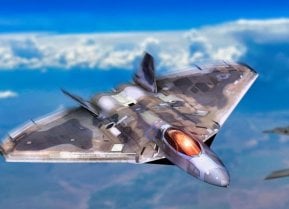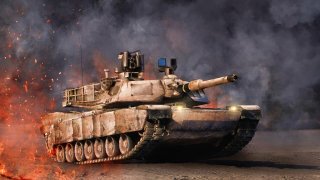M1 Abrams: How Long Can the Best Tank Ever Dominate the Battlefield?
The article contrasts the effectiveness of the M1 Abrams tanks in 1991 with the current challenges tanks face in modern warfare, advocating for investment in tanks equipped with anti-drone defenses.
Summary and Key Points: The piece recounts the beginning of Operation Desert Storm, highlighting the American-led coalition's swift success in liberating Kuwait from Iraqi forces.
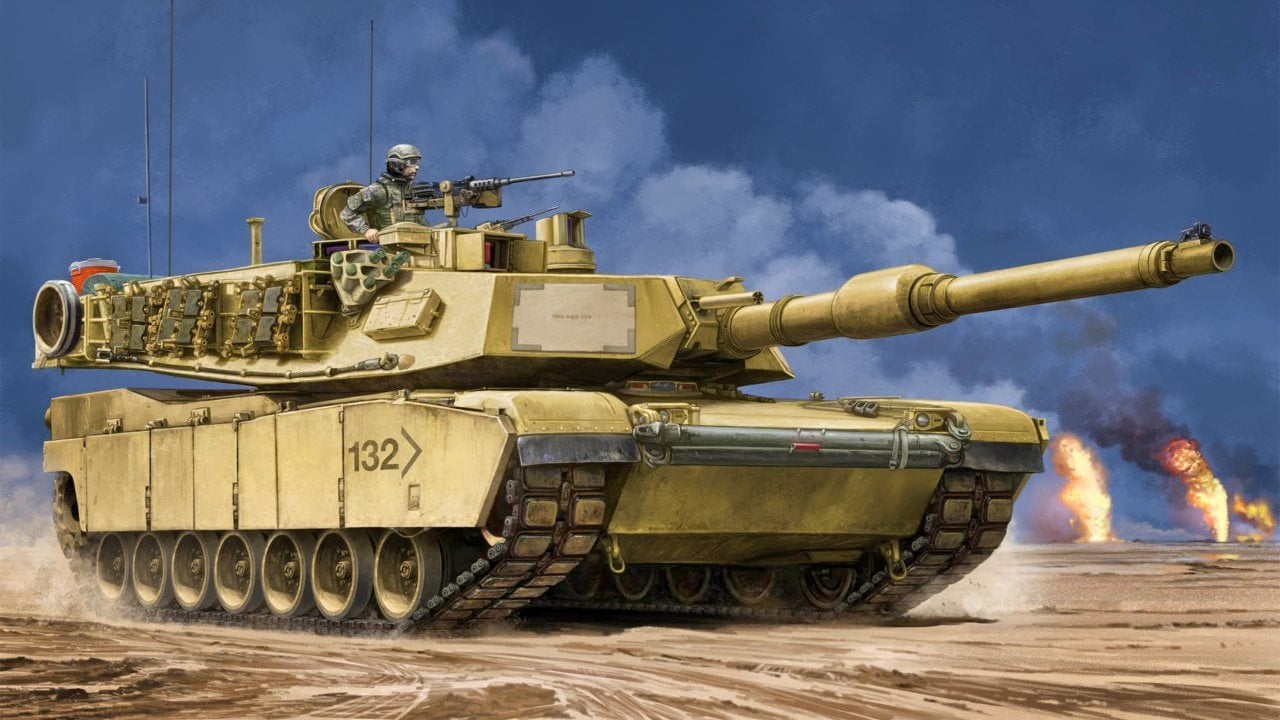
-Central to this victory was the M1A1 Abrams tank, which proved decisive in the Battle of 73 Easting, dubbed the last major tank battle of the 20th century.
-Despite the Iraqi Republican Guard's resistance, the advanced capabilities of the Abrams tank, including superior firepower, range, and night vision, led to a lopsided victory.
-The article contrasts the effectiveness of the Abrams tanks in 1991 with the current challenges tanks face in modern warfare, advocating for investment in tanks equipped with anti-drone defenses.
Operation Desert Storm: How the Abrams Tank Dominated the Battlefield
After months of building up in neighboring Kuwait. Constant exchanges between the leaders of the countries involved. Operation Desert Storm, the mission of allied powers to liberate the tiny oil-producing nation of Kuwait from the vile clutches of the Baathist gangster and Iraqi dictator, Saddam Hussein, had begun. Fearinga Vietnam War in the desert, the George H.W. Bush Administration was overjoyed by the efficiency with which America’s advanced military jogged through the desert, crushing what was then the fourth-largest army in the world.
Still, the Iraqis were not without their own elite forces. The infamous battle-hardened Iraqi Republican Guard and their Soviet-built tanks had decided to catch the Americans off-guard. Not realizing, though, that the Americans were armed with the most lethal killing machine to have ever rolled across a battlefield: the M1A1 Abrams tank (developed by General Dynamics).
The M1 Abrams Fights the Greatest (and Last) Tank Battle of the Twentieth Century
The stage was set for one of the greatest tank battles of the twentieth century. In fact, it has been dubbed as the “last tank battle” of the twentieth century. Until the recent outbreak of hostilities between Russia and Ukraine, many military theorists had assumed it might have been the final tank battle ever.
Known to history as the “Battle of 73 Easting,” the bizarrely named conflict earned its title from the identifier on the battle maps of Coalition forces. It was the sector that the Coalition forces had been traversing. An astonishing 200-300 Coalition armored vehicles of various types had been assembled there along with 4,000 infantrymen. On the other side of the battle lines was approximately 300-400 armored Iraqi vehicles and 2,500-3,000 infantrymen.
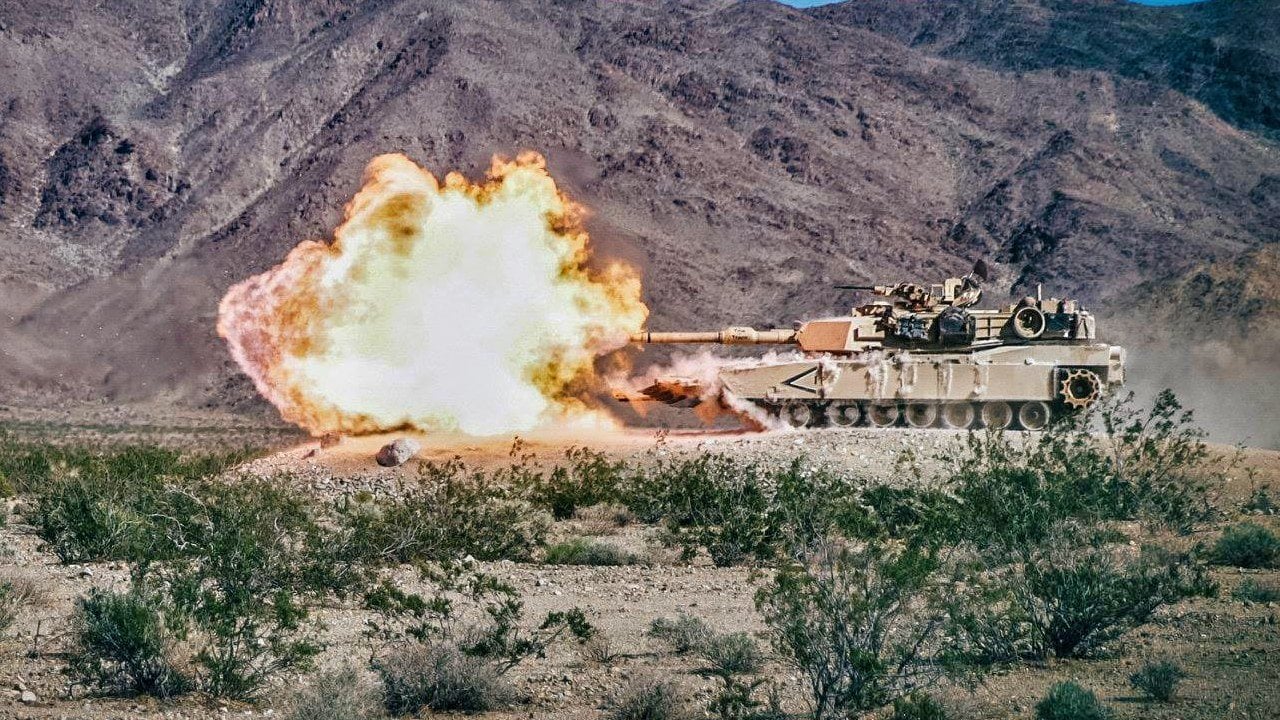
The American-led Coalition forces completely crushed the Iraqis. In many cases, the Iraqis never even saw the Yanks coming. And that was exclusively because of the next-generation Abrams tanks the Americans went screaming into the fight with. In fact, some have speculated that the entire American force deployed to fight Iraq was basically a slightly retooled force that was originally supposed to engage with the Red Army in a potential Soviet invasion of Western Europe via the Fulda Gap.
If that were so, given that Iraq possessed some of the Soviet Union’s most advanced weapons systems, it is possible that had a Soviet invasion of Western Europe taken place in the Cold War, the Americans might have had the technology to stop it (at least conventionally).
But the Iraqi defeat in 1991 was a wakeup call for the world’s powers, especially China, which began formulating their unconventional warfare strategy. They could not rely on Soviet era weapons and systems to compete with the Americans.
In 1991, the Americans showed the world that they were lightyears ahead of the Soviets. The Abrams tank was one of the key examples of just how advanced the Americans were compared to their enemies. The Russian-built T-55 and T-72 Main Battle Tanks that the Iraqis were using in the war were simply no match for the speed, firepower, range, and superior training of the American tank crews in 1991.
The Iraqis lost upwards of 160 tanks. The Americans lost zero. One Bradley Fighting Vehicle was lost in the fight. The Iraqis were completely eviscerated by the American tanks. That’s because the Abrams tanks were next-generation tanks.
The Details of the Abrams Tanks
The Abrams tanks were able to destroy the Iraqi tanks from far greater distances than were the Soviet built Iraqi tanks able to engage the Americans. The powerful 120 mm smooth bore cannon that sat atop the Abrams tanks could fire a variety of rounds. What’s more American tank crews could fight at night, thanks to night vision goggles. Desert Storm has also been called America’s first “space war” because of the copious use of early Global Positioning System (GPS) satellites to guide the American mechanized units in the featureless deserts.
Truly, the Iraqis were no match for the Americans.
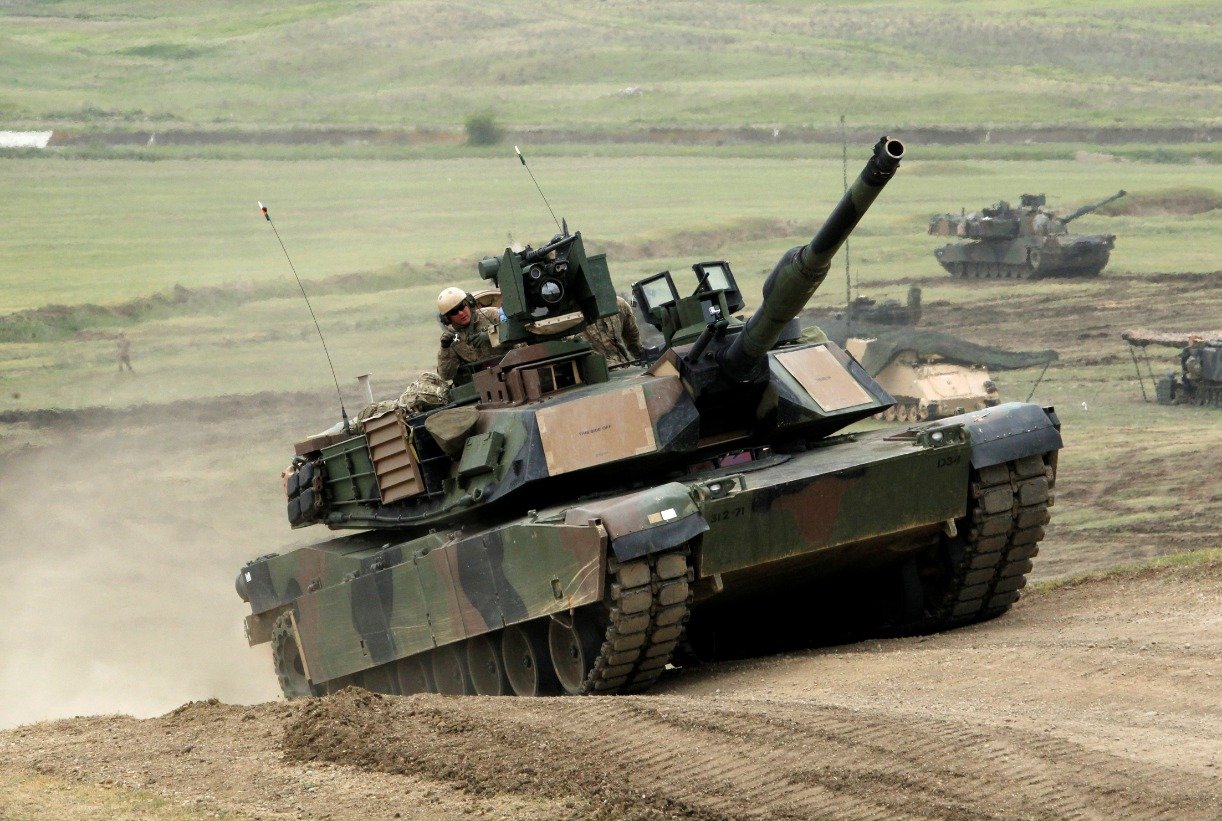
Multiple variants have been created of the Abrams tanks over the years. It remains the Main Battle Tank of the US Army. Older versions are currently being deployed to Ukraine, where Ukrainian forces will attempt to use them against their Russian adversaries in that war. Unfortunately for the Ukrainians, the versions they’re receiving from America are older and are in need of maintenance. They are not the most updated versions of the Abrams tank.
Where the Army Should Be Sending Their Investments
Even the more updated variants of the M1 Abrams might not be very useful in a future war. Not when, as the world has seen in the killing fields of Ukraine, drones and other anti-tank systems—which usually cost a fraction of what a modern MBT costs—can destroy tanks with wanton abandon.
For all the talk about how Ukraine is a conventional war, the tank battles in that conflict have been, shall we say, lacking. They’ve been nothing like the tank battles of Desert Storm, notably the Battle of 73 Easting, where the Abrams tanks earned their stripes as the greatest tank of all time (and to be clear, the Abrams is the greatest tank of all time).
A wise investment not into more tanks should be made, but into tanks that can field anti-drone defenses. Possibly even tanks equipped with their own drone capabilities to serve as vital force multipliers in battle.
About the Author:
Brandon J. Weichert, a National Interest national security analyst, is a former Congressional staffer and geopolitical analyst who is a contributor at The Washington Times, the Asia Times, and The-Pipeline.
All images are Creative Commons.
